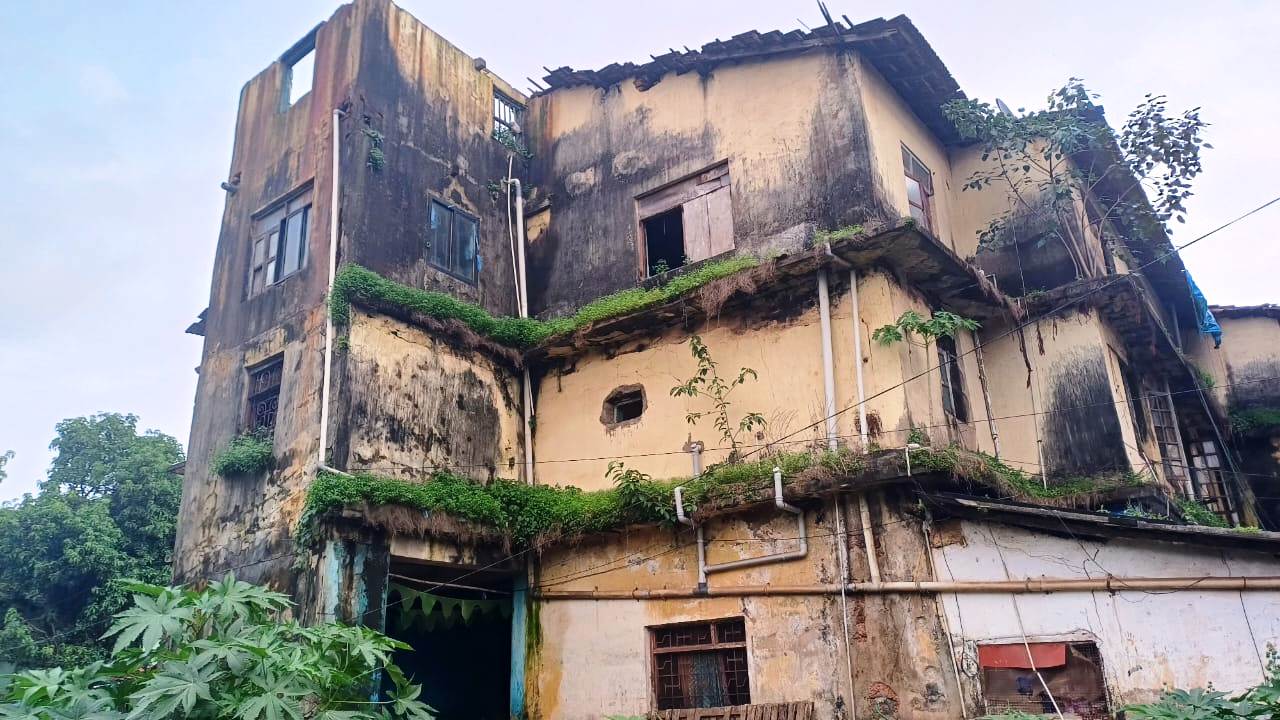Despite being abandoned, the building remains active on Margao electoral rolls

The ill-fated Dawood building.
MARGAO
The usual hustle and bustle has long disappeared, and the once-busy Dawood building at the Khareband locality of the commercial capital now stands deserted. Its thickly populated quarters are empty, and its high walls bear visible signs of wear and decay. At first glance, the decades-old structure appears to lie in ruins.
Once home to dozens of families, the Dawood building has remained empty ever since a fire engulfed its top floors on April 9 earlier this year. In the aftermath of the inferno, authorities ordered a complete evacuation, forcing all residents to vacate for their safety.
Now, four months later, no one resides within the building’s walls. Some of the residents have taken shelter with relatives, while others must have moved into rented accommodations across the city.
Yet despite being physically abandoned, the Dawood building continues to live on — at least on paper. It remains very much active on the electoral rolls of the Margao Constituency.
The Dawood building has been the home for over 350-odd voters in the past. The figure must have come down to around 200-odd voters, according to sources.
It’s these voters registered under the address of this deserted building, whose status remains uncertain. Once considered a "block vote" with the power to sway outcomes in civic polls and even Goa Legislative Assembly elections, the Dawood building's electorate now finds its future uncertain — displaced from the building post-fire incident.
Civic polls loom, voters'
fate remains uncertain
Margao’s civic elections are scheduled for early March 2026. But with no signs of life returning to the Dawood building, and its residents scattered across the city, a critical question arises: How long can voters remain on an electoral roll if they’ve not continuously resided at a registered address for months?
In this case, all the residents of Dawood building were vacated after the April 9 fire. It has now been four months, and not only is the building still uninhabited, but no repair work has been initiated.
A structural stability test conducted by the Goa Engineering College had recommended urgent repairs. However, the landlord has so far not initiated steps to carry out the repairs to facilitate the residents, mostly tenants, to return back to the building.
Margao Municipal officials in private say that they have forward the recommendations made by the Goa Engineering College to the district Collector, South for necessary action since the structural stability study was carried out at the instructions of the district authorities.
Sources pointed out that should the building remain unfit for habitation, and residents continue to live elsewhere, an electoral dilemma looms large: Will these displaced voters still have the right to cast their vote in the 2026 civic polls or the 2027 Assembly elections?
District Collector promises
to look into the matter
When The Goan reached out to South Goa District Collector Egna Cletus, IAS — who also serves as the District Electoral Officer — to shed light on the status of the voters inhabiting the Dawood building post, April 9 fire inferno, she assured to look into the matter.
"The Election Commission has laid down guidelines on the issue of a voter's right to vote," she stated. "We will go by those guidelines in the case of the Dawood building."
She further noted that if a voter changes their residence, they are expected to update their voter registration to reflect their new address. She, however, acknowledged that the residents of Dawood building were told to leave due to an emergency evacuation after the fire incident.
For now, the building may lie deserted, but the electoral fate of its once-active residents remains unknown.